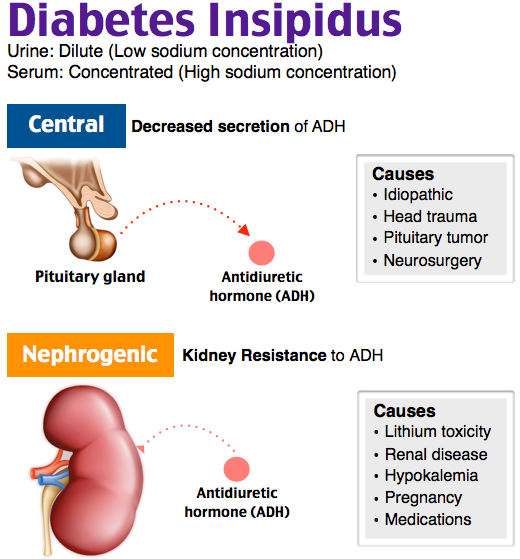What is diabetes insipidus? Diabetes insipidus is the consequence of primary or secondary deficiency of antidiuretic … Diabetes insipidus – find out about symptoms, diagnosis, and moreRead more
Diabetes insipidus
Diabetes insipidus is a condition characterized by intense thirst and frequent and large amounts of urination (urine volume exceeds 3 liters of urine per 24 hours). This condition has nothing to do with diabetes (which consists of an increased concentration of “sugar” in the blood), although they may have common symptoms (excessive thirst and excessive urination).
In the case of diabetes insipidus, it is a problem with a hormone called vasopressin or ADH (antidiuretic hormone) which, as the name suggests, has the role of limiting the amount of urine. This hormone is produced by neurons in the hypothalamus and is then stored in the pituitary gland (both the hypothalamus and the pituitary gland are located at the base of the brain). Vasopressin acts on the kidneys, producing water reabsorption and decreasing the amount of urine.
